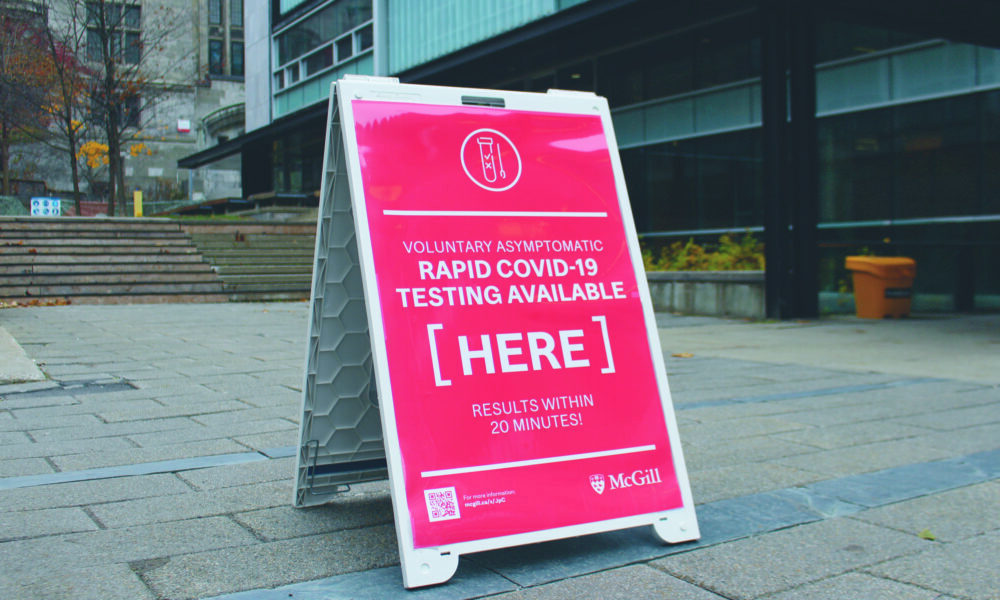As the Fall 2021 semester and McGill’s bicentennial year comes to a close, the McGill administration has started envisioning plans for the university’s academic, ecological, and structural future. From opening a new Office for Mediation and Reporting, to assessing McGill’s Strategic Equity, Diversity, and Inclusion Plan and the Anti-Black Racism Action Plan, to adapting to a world changed by COVID-19, the administration is beginning to implement several changes.
McGill principal and vice-chancellor Suzanne Fortier reflected on these changes in a round table interview with campus media on Nov. 24. Fortier feels that updating plans and creating new offices are the first steps toward a more equitable and globally in-tuned university.
“Next calendar year, we are [entering] a third century of our institution, so it is a great time for us to think about the future,” Fortier said. “We celebrate with the full knowledge that not all of our 200 [years of] history were great [….] As we think about our third century, it is also [about] how do we learn from our past.”
Fortier listed reducing the university’s environmental impact and carbon footprint as a key objective in the coming decades, citing McGill’s commitments to reach net-zero by 2040, switch energy systems from gas and oil to electric, and adopt a decarbonization policy.
“We have a huge problem right now, which is climate change and the planet,” Fortier said. “We need to evolve to be terra sapiens.”
The term “terra sapiens” refers to the evolution of human action toward a more environmentally aware collective consciousness. Some students, however, like Samuel Helguero, 3L and Divest McGill organizer, feel Fortier’s words do not mark a transition to a greener and cleaner campus.
“Suzanne Fortier remains perhaps the most ardent opponent to divestment across all of Canadian universities,” Helguero wrote in an email to The McGill Tribune. “To see her attempt to brand the school as ecological is only ironic.”
Another topic Fortier touched on was the recent letter sent by Christopher Manfredi, McGill provost and vice-principal (Academic), to the Office de consultation publique de Montréal (OCPM), which subsequently published it on their website. In the letter, Manfredi explained that McGill would be open to participating in the investigation of unmarked Indigenous graves at the Royal Vic site. Fortier cautioned that McGill cannot embark on the investigation alone.
“[McGill] cannot do anything by itself,” Fortier said. “The site does not belong to us, it belongs to the government of Quebec and to the McGill University Health Centre, what people call the Glen [….] It is unlikely that we would find [graves], but we are not totally discrediting the suspicion […], and we will do our work with the technologies that allow you to see if there are unmarked graves.”
The ongoing COVID-19 pandemic has forced many institutions, such as McGill and large corporations, to reevaluate the way day-to-day affairs are run. A takeaway for McGill’s governing bodies—the Board of Governors and Senate—as Fortier explained, has been to trust in those who have been educated and trained to handle unforeseen situations and events like a global pandemic.
In an interview with the Tribune, U2 Arts student Mata Bocoum described a lack of engagement with key issues such as climate change and technological advancement on McGill’s campus, and felt that the administration could do more to acknowledge campus organizations that focus on those topics.
“I am not someone who is very engaged in extracurricular activities […] so maybe that is why I do not see any promotion for making changes with the climate […] or technological innovation,” Bocoum said in an interview with the Tribune. “But, I feel like [clubs] are not promoted enough. [Activist groups] should be a focus for promotion because they are very important in the new era, but they are not talked about enough.”









